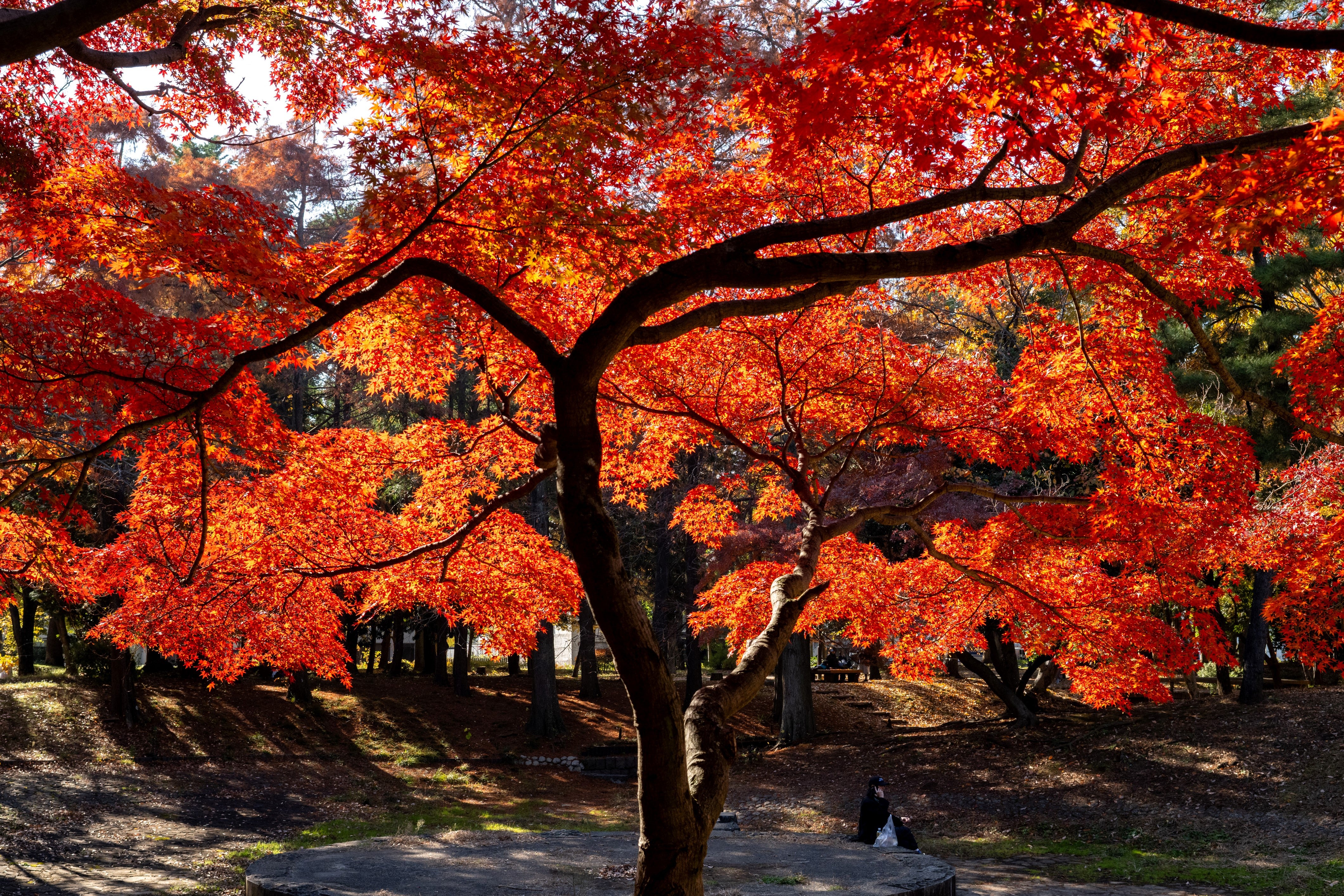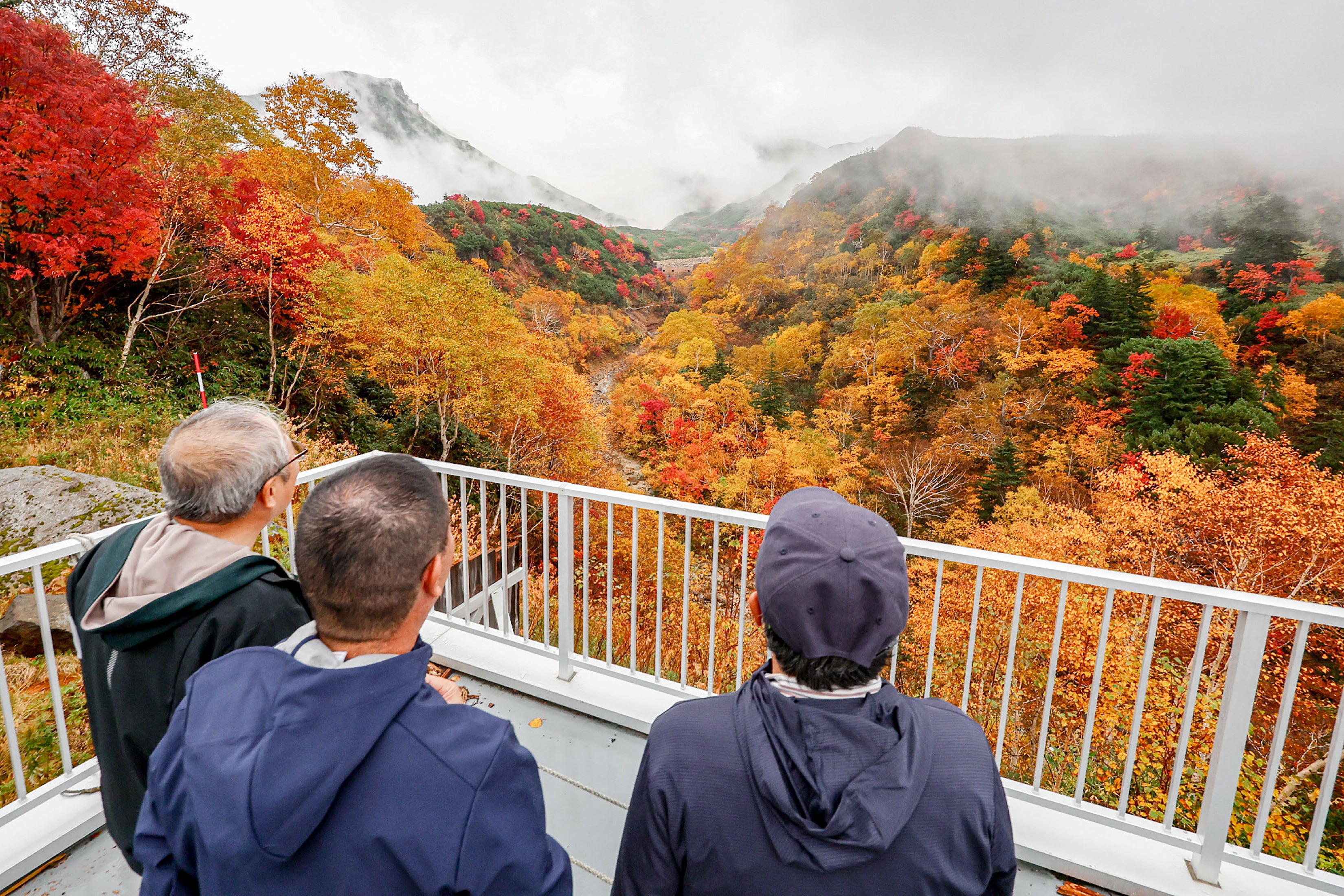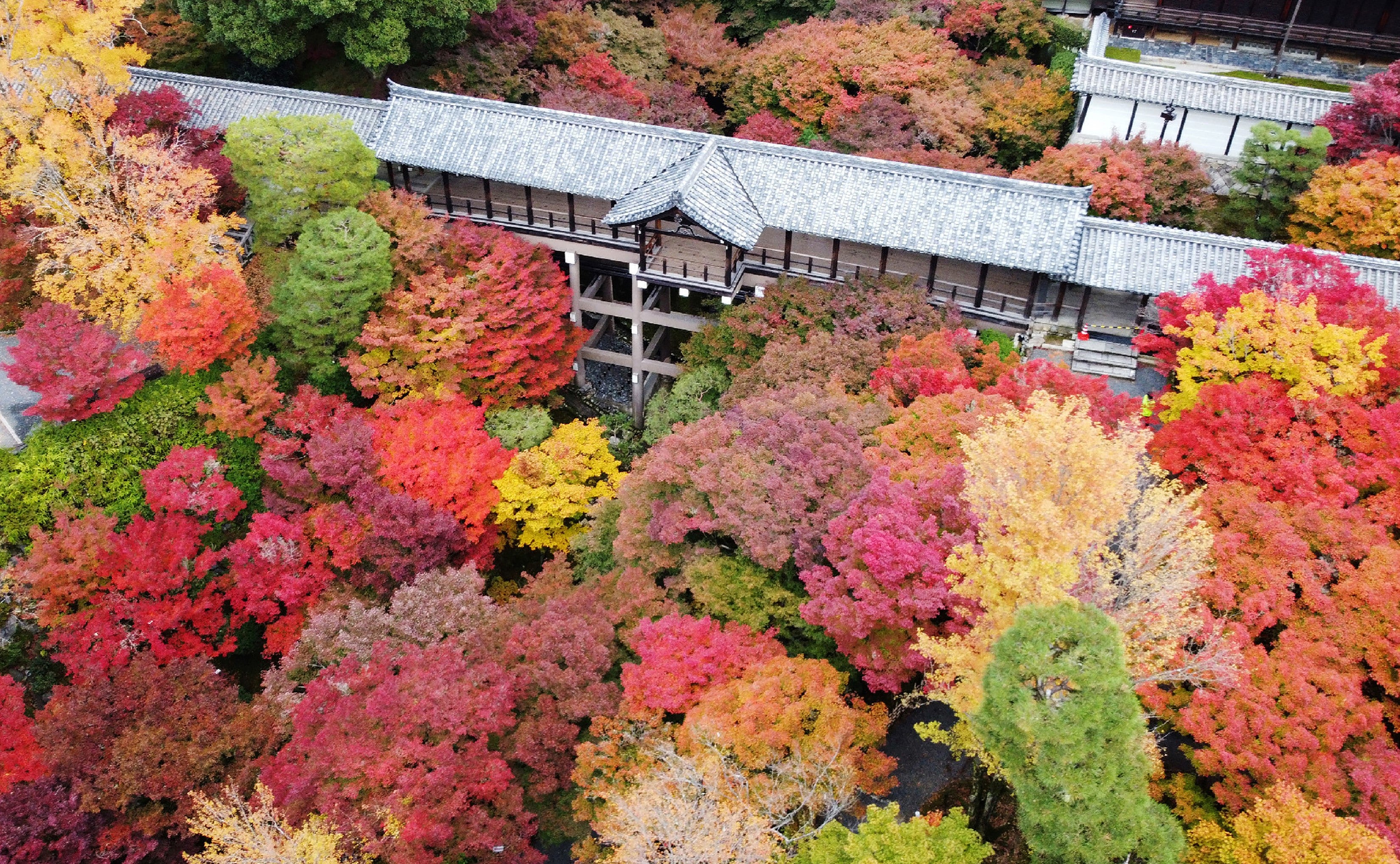Japan is experiencing its warmest autumn since record-keeping began more than 100 years ago, pushing the country’s iconic fall foliage season into December.
According to the Japan Meteorological Agency (JMA), temperatures from September to November were 1.97 degrees Celsius above normal since records began in 1898.
The autumn unrest was recorded as the country entered its hottest summer on record after three scorching months. The heatwave was 1.76 degrees warmer than the average recorded from 1991 to 2020 during July and August.
“This year’s temperature was 1.97 degrees Celsius higher than usual, making it the hottest autumn since records began in 1898,” the Japan Meteorological Agency announced on Monday.
The temperature was 2.4 degrees Celsius higher than the average temperature in Tokyo from September to November.
The temperature in central Nagoya was 2.9℃, and in the northern part of Sapporo 1.2℃.

According to the Japan Meteorological Agency, the best time to see autumn leaves is currently around December 5th in Tokyo and around December 9th in Osaka, which is more than a month late in both places.
It depicts Japan’s iconic Mount Fuji remaining snow-free this fall, something like this has never happened since record-keeping began 130 years ago.
Japan’s highest mountain is usually covered in snow by mid-October, marking the beginning of winter. However, this year, as temperatures rose, Mt. Fuji remained bare, breaking the previous most recent snowfall record, set on October 26, 1955 and tied in 2016.

The delay in snowfall at Fuji is part of a pattern of unpredictable seasonal changes occurring around the world due to the climate crisis. Longer summers have an impact on both snowpack and precipitation.
In fact, 2024 is set to be the second consecutive hottest year on record.
Dozens of Japanese cities recorded high temperatures near or above 30 degrees Celsius at the beginning of October. According to Based on analysis by nonprofit research organization Climate Central.

The extreme heat experienced by Japan is three times more likely to be caused by the climate crisis, a study has found.
In 2024, the number of deaths due to heatstroke will reach a record high in Tokyo, with 252 people dying from June to September. Most of the victims were elderly and were found dead in their homes without air conditioning. Earlier this year, the early blooming of Japan’s cherry blossoms also raised concerns.
Climate scientists predict that 2024 will be the hottest year on record.
2024 is expected to be the first year in which temperatures rise by more than 1.5 degrees Celsius above pre-industrial levels, and will likely break records with an average of more than 1.55 degrees Celsius.







